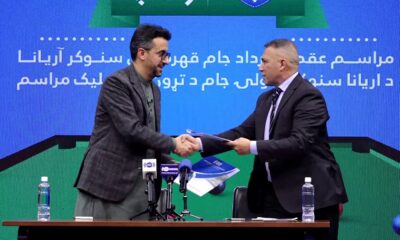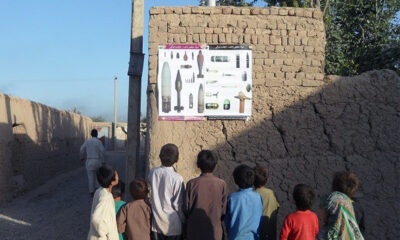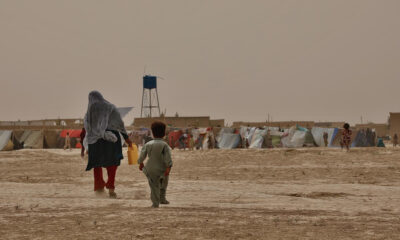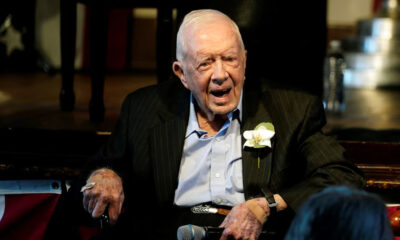Regional
Key aide of Pakistan’s Imran Khan resigns amidst standoff with army

A key aide of former Pakistani Prime Minister Imran Khan said on Wednesday he was quitting politics, dealing a further blow to the embattled ex-premier's party as a standoff with the military intensified, Reuters reported.
Former Information Minister Fawad Chaudhry's resignation is the latest - and highest profile - in a string of departures from Khan's Pakistan Tehreek-e-Insaf (PTI) party, which the civilian government on Wednesday threatened to ban.
"I have decided to take a break from politics, therefore, I have resigned from party position and parting ways from Imran Khan," Chaudhry said in a post on Twitter.
The former information minister spent days in detention after violent protests swept the country this month after the detention of Khan on corruption charges, read the report.
Chaudhry condemned the protests by Khan's supporters, who attacked military installations, including army headquarters, and government buildings.
Khan says the corruption allegations were fabricated and that his associates are being forced out under duress from the government and the military in a manoeuvre to dismantle his party before elections scheduled later this year.
He has been embroiled in a tussle with the military since he was removed from power last year in a parliamentary vote which he says was orchestrated by the country's top generals. The military denies this.
Khan is Pakistan's most popular leader according to local polls, while the military is its most powerful institution, having ruled directly or overseen governments throughout Pakistan's 75-year history, Reuters reported.
The face-off has raised new fears about the stability of the nuclear-armed South Asian country of 220 million people as it struggles with its worst economic crisis in decades.
Chaudhry is the second former federal minister to leave Khan. On Tuesday, former Human Rights Minister Shireen Mazari announced she was leaving politics, citing health concerns, after spending 12 days in detention.
Most of the top leaders of the PTI have been taken into custody. A number of former parliamentarians and mid-tier leaders have quit the party or politics entirely over the last few days.
Another key aide, former Finance Minister Asad Umar also announced on Wednesday, hours after he was released from detention, that he was resigning from his party position of secretary general.
Defence Minister Khawaja Asif told reporters on Wednesday that the government is considering banning the PTI for attacking the "very basis of state" and this could not be tolerated.
A ban would be likely to further enrage Khan's supporters and exacerbate the confrontation with the military establishment.
PTI party lawyer Ali Zafar said any such step would be challenged in court. He said an entire party cannot be blamed for acts committed by individuals.
Khan, 70, became prime minister in 2018 with the tacit support of the military, though both sides denied it at the time. But he later fell out with the generals after being seen as having tried to interfere in key promotions in the security sphere.
After being removed from power last year, Khan has been campaigning for a snap general elections, rallying supporters across the country. But the prime minister who replaced him, Shahbaz Sharif, has rejected calls for a poll ahead of the due date late this year.
Khan has said the corruption charges were made up to banish him from politics.
He was detained on May 9 but was later freed on bail.
In an address on Wednesday, Khan said he would form a negotiating committee that will offer to talk with state authorities to seek a way out of the impasse, Reuters reported.
He said if that committee was convinced the matter could be resolved by him stepping aside from politics or from not holding snap elections, he would comply.
Regional
Azerbaijan’s president says plane that crashed was shot at from Russia
Aliyev said he regretted that “some circles” in Russia had tried to hush up the truth about the crash of the Azerbaijan Airlines planes by sowing false narratives about the causes of the crash.

Azerbaijani President Ilham Aliyev said on Sunday that the passenger plane that crashed in Kazakhstan killing 38 people had been damaged due to shooting from the ground in Russia, Azerbaijan state television reported.
Aliyev said he regretted that "some circles" in Russia had tried to hush up the truth about the crash of the Azerbaijan Airlines planes by sowing false narratives about the causes of the crash, Reuters reported.
On Saturday, Russia's President Vladimir Putin apologised to Aliyev for what the Kremlin called a "tragic incident" over Russia in which the Azerbaijan Airlines plane crashed after Russian air defences were fired against Ukrainian drones.
Regional
Suicide bomber kills police commander in southern Iran – media reports
The unidentified bomber was also killed and another police officer was injured in the attack outside a police headquarters in the Gulf port city, the media reports said.
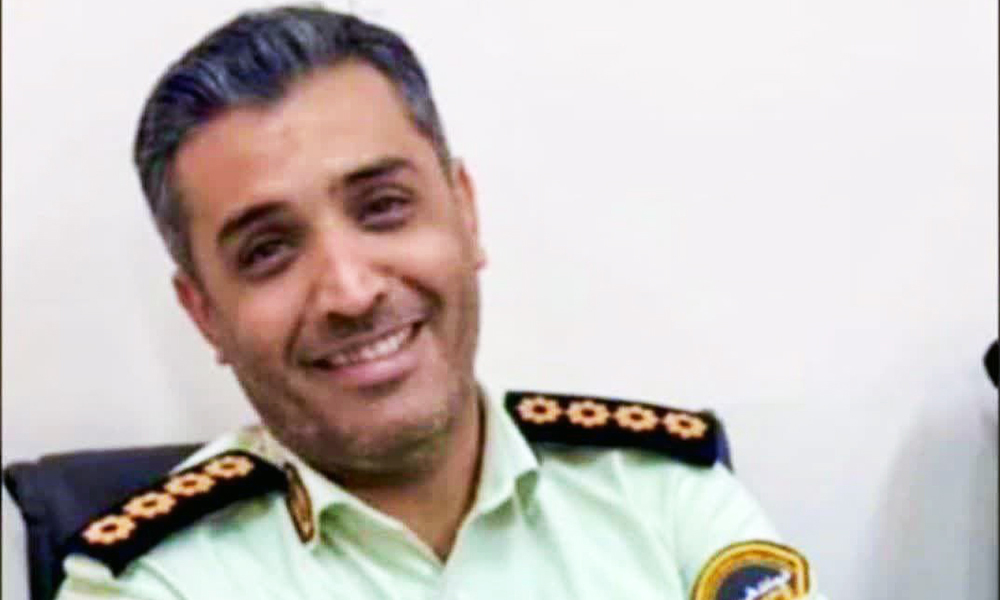
A suicide bomber killed the head of police intelligence in Iran's southern port city of Bandar Lengeh on Saturday, Iranian state media reported.
The unidentified bomber was also killed and another police officer was injured in the attack outside a police headquarters in the Gulf port city, the media reports said.
The attack came days ahead of the anniversary of two suicide bombings on Jan. 3 in which nearly 100 people were killed at a memorial in southeastern Iran for top commander Qassem Soleimani, who was assassinated in Iraq in 2020 by a U.S. drone. Islamic State claimed those two suicide bombings.
Regional
Manmohan Singh, India’s reluctant prime minister, dies aged 92

Described as a "reluctant king" in his first stint as prime minister, the soft-spoken Manmohan Singh, who died on Thursday at the age of 92, was arguably one of India's most successful leaders.
Singh, the first Sikh to lead his nation, was prime minister from 2004 to 2014, serving a rare two terms. He had been undergoing care for age-related medical conditions, Reuters reported.
Singh is credited with steering India to unprecedented economic growth and lifting hundreds of millions out of dire poverty.
"India mourns the loss of one of its most distinguished leaders," said Prime Minister Narendra Modi.
Born into a poor family in a part of British-ruled India now in Pakistan, Manmohan Singh studied by candlelight to win a place at Cambridge University before heading to Oxford, earning a doctorate with a thesis on the role of exports and free trade in India's economy.
He became a respected economist, then India's central bank governor and a government adviser, but had no apparent plans for a political career when he was suddenly tapped to become finance minister in 1991.
During that tenure to 1996, Singh was the architect of reforms that saved India's economy from a severe balance of payments crisis and promoted deregulation, as well as other measures that opened an insular country to the world.
Famously quoting Victor Hugo in his first budget speech, he said: "No power on earth can stop an idea whose time has come," before adding: "The emergence of India as a major economic power in the world happens to be one such idea."
Singh's ascension to prime minister in 2004 was even more unexpected.
He was asked to take on the job by Sonia Gandhi, who had led the centre-left Congress Party to a surprise victory. Italian by birth, she feared her ancestry would be used by Hindu-nationalist opponents to attack the government if she were to lead the country.
Riding an unprecedented period of economic growth, Singh's government shared the spoils of India's newfound wealth, introducing welfare schemes such as a jobs programme for the rural poor.
In 2008, his government also clinched a landmark deal that permitted peaceful trade in nuclear energy with the United States for the first time in three decades, paving the way for strong relations between New Delhi and Washington.
But his efforts to further open up the Indian economy were frequently frustrated by political wrangling within his own party and demands made by coalition partners.
'HISTORY WILL BE KINDER TO ME'
While he was widely respected by other world leaders, at home Singh always had to fend off the perception that Sonia Gandhi was the real power in the government.
The widow of former prime minister Rajiv Gandhi, whose family has dominated Indian politics since independence from Britain in 1947, she remained Congress Party leader and often made key decisions.
Known for his simple lifestyle and with a reputation for honesty, Singh was not personally seen as corrupt. But he came under attack for failing to crack down on members of his government as a series of scandals erupted in his second term, triggering mass protests.
The latter years of his premiership saw the Indian growth story that he had helped engineer wobble as global economic turbulence and slow government decision-making battered investment sentiment.
In 2012, his government was tipped into a minority after the Congress Party's biggest ally quit their coalition in protest at the entry of foreign supermarkets.
Two years later Congress was decisively swept aside by the Bharatiya Janata Party under Narendra Modi, a strongman who promised to end the economic standstill, clean up graft and bring inclusive growth to the hinterlands.
At a press conference not long before he left office, Singh insisted he had done the best he could.
"I honestly believe that history will be kinder to me than the contemporary media or, for that matter, the opposition parties in parliament," he said.
Singh is survived by his wife and three daughters.
-

 World4 days ago
World4 days ago14 Syrian police killed in ambush as unrest spreads
-

 Latest News4 days ago
Latest News4 days agoEx-Pakistan envoy says US no longer values her country due to Afghanistan
-

 Business4 days ago
Business4 days agoRussia is using bitcoin in foreign trade, finance minister says
-

 Latest News4 days ago
Latest News4 days agoPakistan confirms airstrikes in Afghanistan
-

 Business3 days ago
Business3 days agoChina’s first railway consignment arrives in Afghanistan via Iran
-
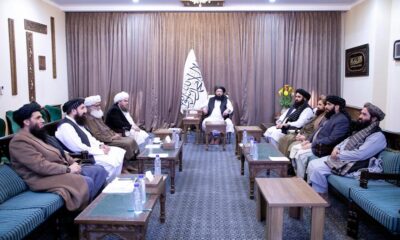
 Latest News2 days ago
Latest News2 days agoAfghanistan as independent country has the right to self-defense: Arg
-
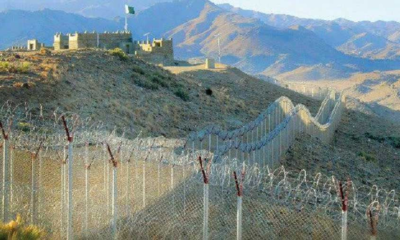
 Latest News2 days ago
Latest News2 days agoAfghanistan carries out retaliatory attack against Pakistan
-
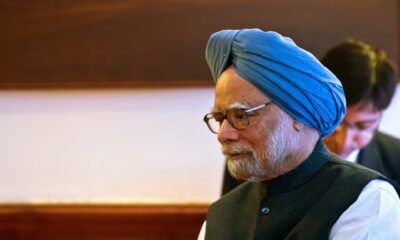
 Regional3 days ago
Regional3 days agoManmohan Singh, India’s reluctant prime minister, dies aged 92


